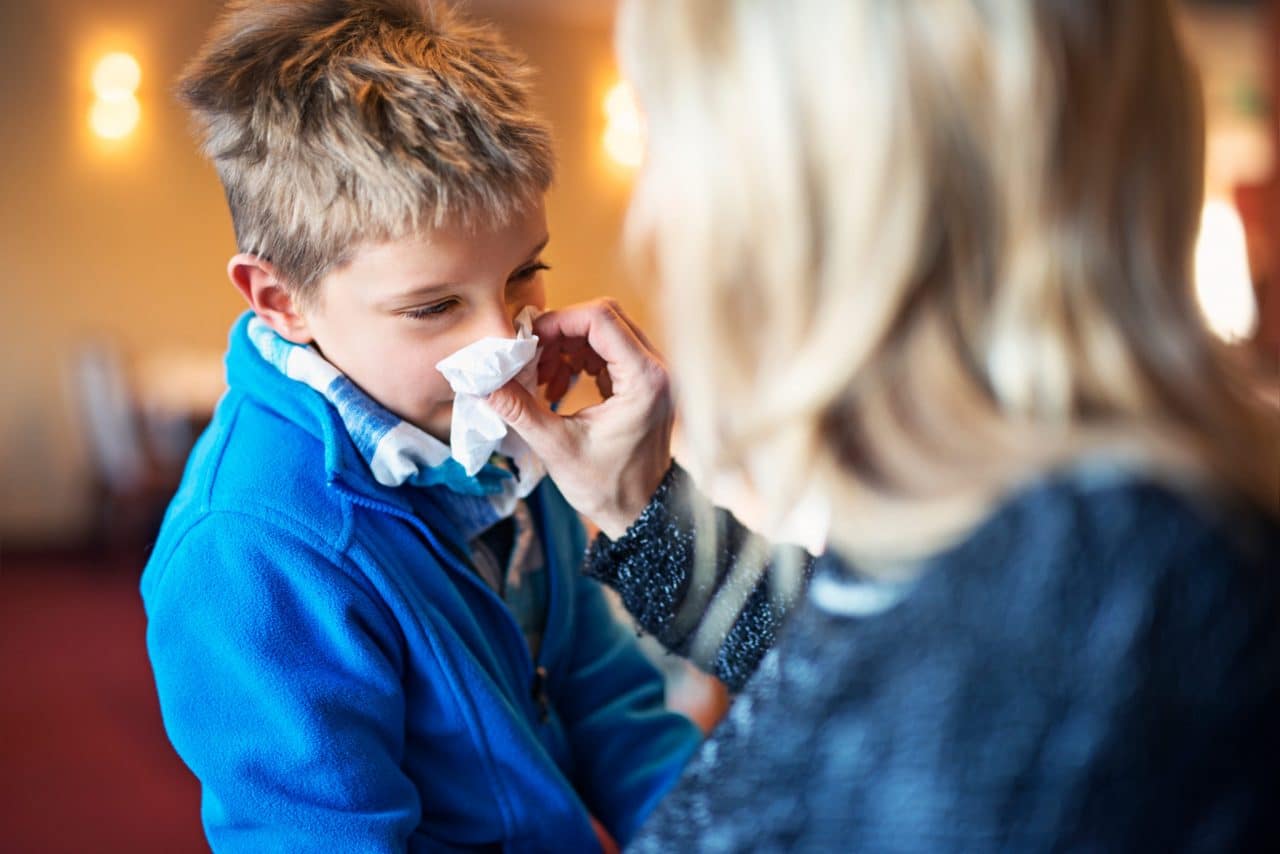Sinusitis may be difficult to diagnose in children since the symptoms of sinusitis are identical to those found in conditions such as colds and allergies.
Sinusitis Causes in Children
Sinusitis occurs when the tissues lining the sinuses become swollen and inflamed, interfering with the drainage of mucus. It is usually caused by a cold or allergies, but can also occur as the result of structural abnormalities like nasal polyps or immune system disorders.
What Are Symptoms of Sinusitis?

Symptoms of sinusitis in children mimic those of the common cold and include irritability, runny nose, congestion, sore throat, cough, postnasal drip, facial pressure and swelling, headache, fever, fatigue, loss of smell and taste, and a thick yellow-green nasal discharge. When sinusitis is the culprit, symptoms usually persist longer than a week to ten days, the typical duration of a cold.
Predisposing Factors
Children who are exposed to tobacco smoke, suffer from allergies, attend daycare or preschool, and experience acid reflux are more prone to developing sinusitis.
How is the Condition Diagnosed?
Your child’s ENT specialist will examine the ears, nose, and throat, and may perform a nasal endoscopy.
Treating Sinusitis in Children
Usually the first steps include decongestants, nasal steroids, and saline irrigation. Antibiotics may also be used. An allergy test may be required for a complete evaluation. Sinus surgery is rarely necessary in children. In cases where surgery is necessary an adenoidectomy will almost always resolve the symptoms.